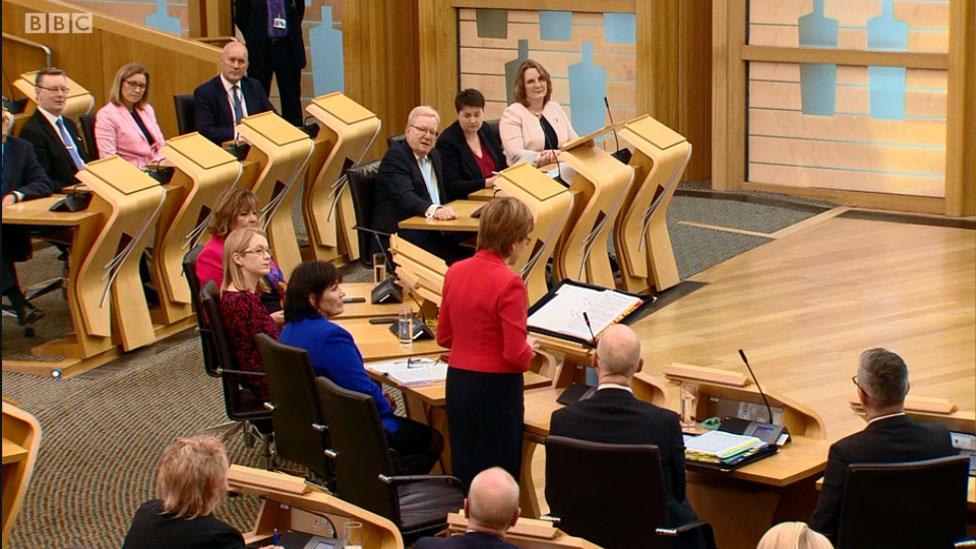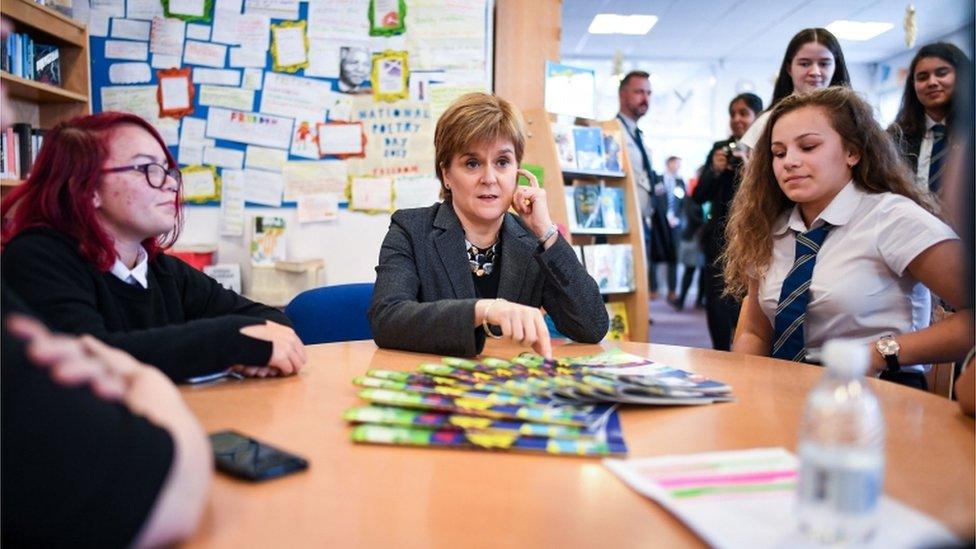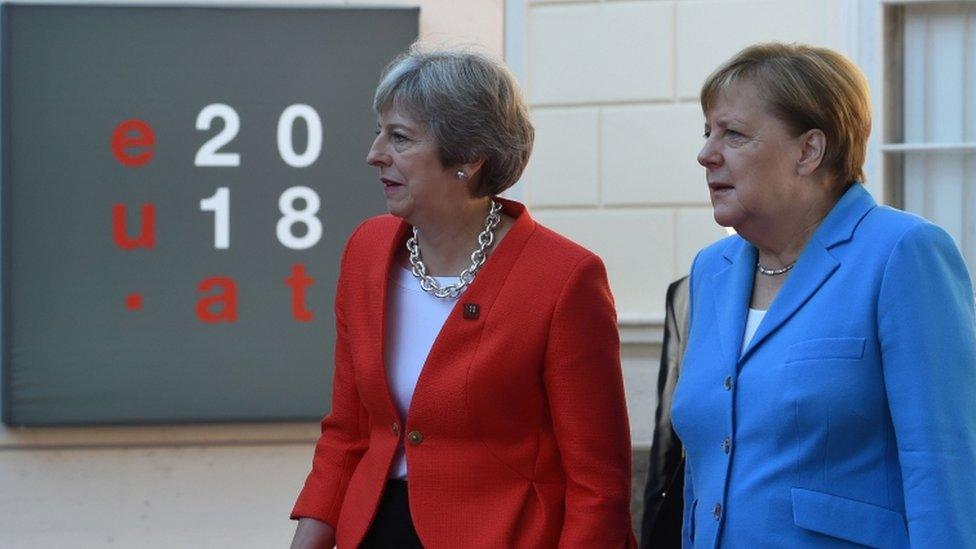FMQs: Judging the results
- Published

Education, the first minister previously informed us, is her top priority. Judge me, she said, by results. But what criteria should we deploy for this assessment, to use the word of the week at Holyrood?
Ruth Davidson for the Tories had a little list, mostly founded upon claims that subject choice in Scotland's schools had been constrained.
In response, Nicola Sturgeon dissented sharply, appearing to question the basis of the research cited by Ms Davidson.
And the first minister had a litany of her own, largely founded upon higher Higher attainment, if you take my meaning. (Or even if you don't.)
Ms Davidson accused her rival of shouting. Stung by this taunt, Ms Sturgeon proceeded to repeat her points in a low, faintly menacing tone.
Sharp dig
In truth, we learned relatively little (like Scotland's youth, if you believe Ms Davidson - but to the contrary, if you heed the FM.)
However, Ms Sturgeon contrived to get in a sharp dig towards the close, during her low, menacing phase. The Tories, she said, had "zero credibility" on education following their U-turn over primary one assessments.
They had backed them in their 2016 manifesto. But they voted to scrap them on Wednesday, alongside other opposition parties, arguing they had changed their minds in the light of emerging evidence. That combined effort inflicted a defeat upon the government.
Perhaps that evidence of malleability convinced Ms Davidson to fish in another sector of the educational pond, avoiding the direct question of P1 assessments.

Ms Sturgeon has said she wants to be judged on her record on education
No such constraint affected Labour's Richard Leonard. He demanded that the FM obey the will of parliament and scrap the assessments.
With a wry smile, the FM noted that Mr Leonard was somewhat selective on the topic of heeding Holyrood.
But she knows too that this is a tricky one for the SNP, who have made a point of stressing Holyrood's sovereignty on such matters as powers returning from the EU. Mr Leonard made precisely that argument.
In response, Ms Sturgeon deployed an interesting case, to the effect that, in 2016, two thirds of voters had backed parties which supported P1 assessment (the SNP and the Tories.)
So where next in practice? Ms Sturgeon said that Education Secretary John Swinney would reflect upon the Holyrood vote - and make a statement at the conclusion of that exercise.
Further reforms
Ministers appear determined to retain the assessments, viewing them as valuable and internationally validated. But Mr Swinney may have to offer further reforms.
For the Greens, Patrick Harvie voiced anger at claims that some anti-fracking demonstrators may have been regarded by the police as domestic extremists.
Ms Sturgeon declined to comment on police operational matters - but stated firmly that she backed peaceful, democratic protest.
And then we were back to Brexit. In Salzburg, the prime minister was encountering EU scepticism about her plan for future economic co-operation, once Britain leaves the club.
At Holyrood, Nicola Sturgeon argued that the scheduled Brexit departure date of 29 March might have to be deferred. Otherwise, she argued, the terms of that future relationship might lack meaningful detail.

Theresa May is in Salzburg for talks with EU leaders including Angela Merkel
Theresa May rejects such a proposition, partly because she dislikes the concept and partly because she needs minimal vacillation if she is to maintain unity within her party.
Aware of this, Nicola Sturgeon, in effect, answered her own conundrum when challenged over the issue by Willie Rennie of the Liberal Democrats.
The FM suggested that a deferred date was unlikely to find favour, owing to what she characterised as Westminster intransigence.
Why then, said Mr Rennie, did the FM not back the notion of a self-styled "People's Vote", that is a further referendum on the terms of the Brexit deal, once they are settled?
Because, said the FM, Scotland had already declared its view firmly - and been ignored. The people of Scotland had declared their desire to remain in the EU, only to have that overturned when the votes from Sunderland and elsewhere rolled in.
Would Mr Rennie give a guarantee that, next time around, Scotland's wishes would be respected? She knew the answer to that one too. (It was a big day for self-replying questions.)
And so, she said, failing such a guarantee, the only way to ensure that Scotland's verdict on the EU would be respected was independence.
SNP ranks cheered. Mr Rennie looked scornful. And when might we learn of further developments in this matter?
Ms Sturgeon has promised to disclose her updated thinking on a putative indyref2 - once there is "clarity" about Brexit.
On current form, that may take some time yet.